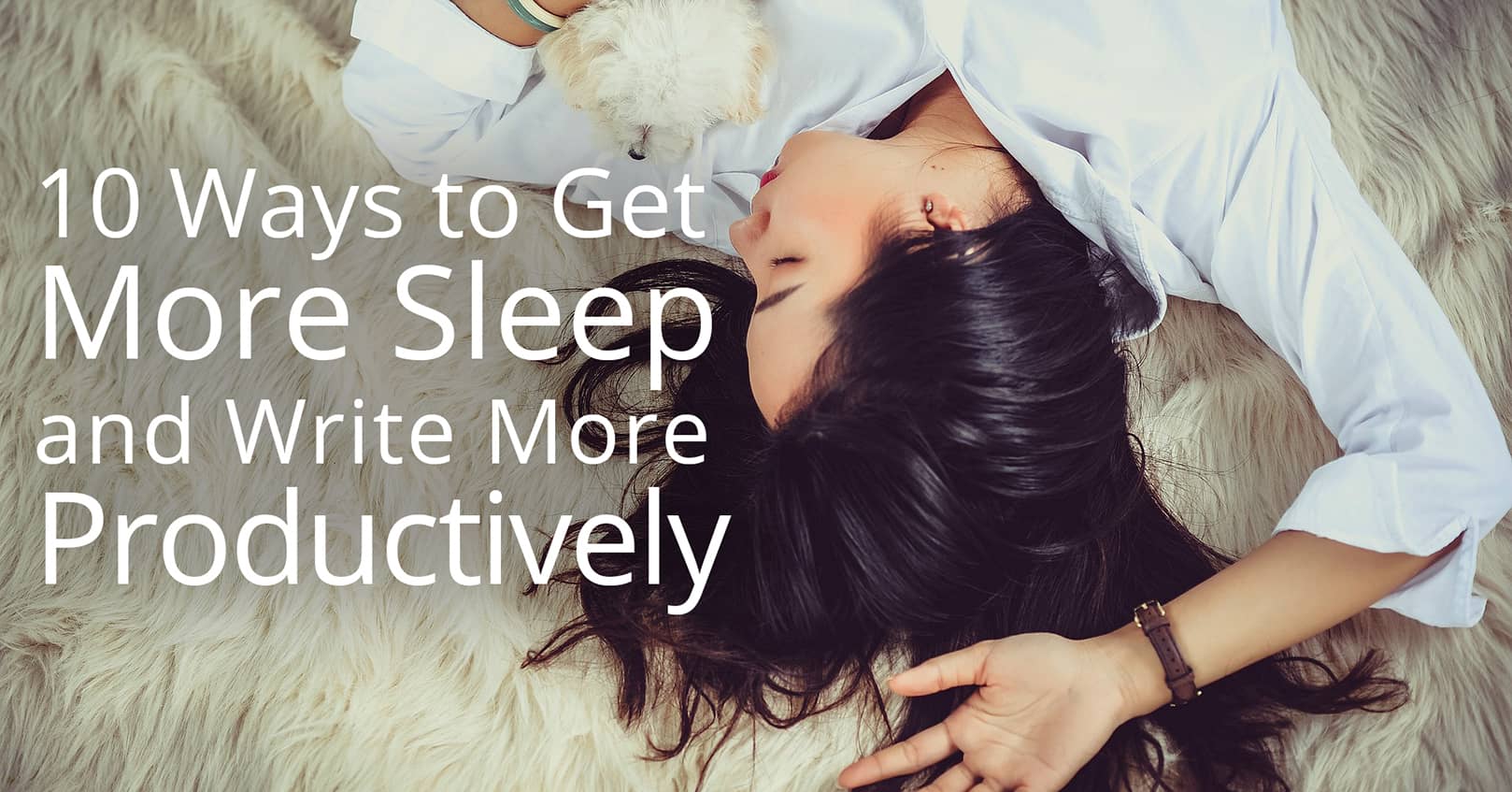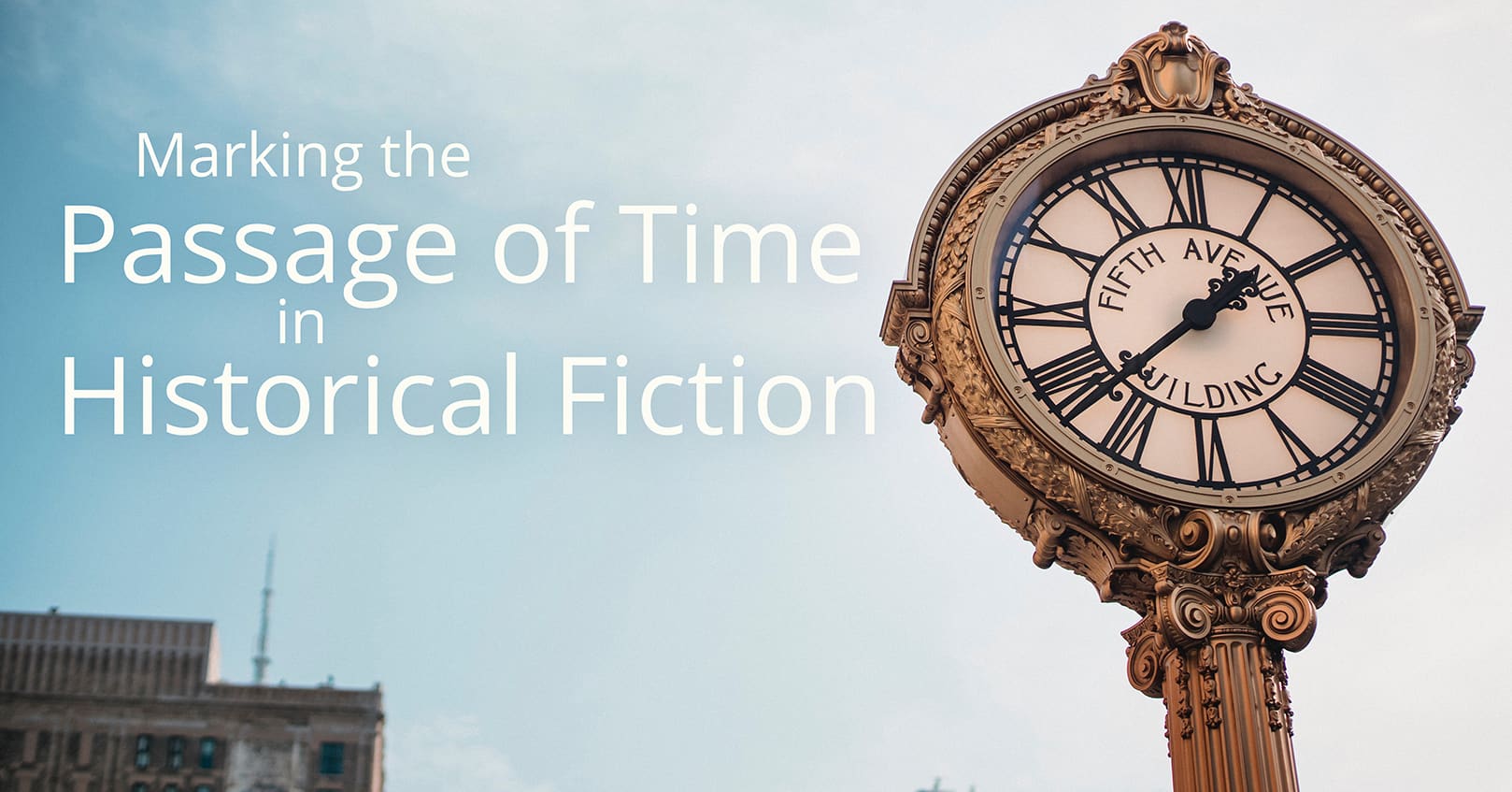
Writing productively is always easier with enough sleep! Lack of sleep dulls your reflexes and thought processes, impairs judgement, makes you forgetful, and negatively impacts your health. The cure is, of course, more sleep. If you’re having trouble getting enough sleep, either because you can’t make time for it or you’re unable to fall asleep once you’re in bed, here are 10 tips to help you out.
1. Set a Sleep Schedule
Setting a sleep schedule not only ensures that you actually get to bed on time, it also establishes a pattern that your body will get used to. That means that your body will feel tired and ready for bed when the time comes, and it’ll be easier to get up in the morning, leaving you feeling more refreshed and rested than you would if you didn’t follow a schedule (even with the same amount of sleep). A sleep schedule will make your writing time more productive.
2. Don’t Work in Your Sleep Area
Where you sleep should be reserved for sleeping. Don’t write, eat, or relax in bed. You want your brain to associate your bed with sleeping; that way, when you get into bed, your brain is ready for sleep.
3. Exercise during the Day
Aerobic exercise helps you fall asleep quicker and improves your quality of sleep. Most people find that exercising right before bed leaves them to wound up to sleep (although some don’t find a negative effect), so it’s probably best to exercise at least two hours before bed. Some find exercising in the morning best because it wakes them up and leaves them alert and ready to write productively, while others find exercising in the evening best because it leaves their body tired and ready for sleep a few hours later. Find what works best for you!
3. Avoid Blue Light at Night
As a writer, you see a lot of blue light from your computer screen, but this light can mess with your circadian rhythm and make your body think it’s daytime. To combat this, you can use a free blue-light filter on your computer, like F.lux. Your phone should also have a nighttime mode. These filters make your screen look orange-y in the evening (but you get used to it quickly), so don’t work on tasks where you need to see accurate color.
Any screen will emit blue light, including your TV. That means it’s best to avoid watching TV right before bed—not only because of the blue light but also because it’s so easy to just watch “one more episode.”
4. Be Aware of What You Eat and Drink before Bed
Of course, it’s a bad idea to consume caffeine shortly before bed (including chocolate or even medication like Excedrin), or to chug a lot of water right before getting into bed (you can’t sleep if you have to get up to use the bathroom after only an hour!). But what you eat also affects your sleep. Acidic foods can cause acid reflux and indigestion, and fatty foods can degrade the quality of your sleep. Going to bed with an empty stomach, though, can also make it difficult to fall asleep. A light snack of a tryptophan-rich food, coupled with a healthy carbohydrate, can make you sleepy and just the right amount of full. Tryptophan is an amino acid than can be made into serotonin, which is associated with healthy sleep. Tryptophan-rich foods include milk, nuts and seeds, bananas, honey, and eggs.
5. Try Meditation
If you’re unable to fall asleep, meditation may help. Meditation helps relax the body and can make it easier to fall asleep. To meditate, sit or lie down in a comfortable position and focus on your breathing, inhaling and exhaling deeply. If any thought comes into your mind, push it away and re-focus on your breathing. When you’re just starting out, you only want to meditate for a few minutes before bed, and then gradually work up your meditation time to 15 to 30 minutes.
6. Listen to Music or a White Noise Machine
Music and white noise machines block out external sound and may make it easier to sleep. Your favorite relaxing music may calm your mind and body and ready you for bed. A white noise machine produces a consistent and soothing sound that will lull you to sleep and keep you asleep.
7. Put in Black-Out Drapes
If you live in a busy city, or your bedroom window is facing east, light from outside may be affecting your sleep. Black-out drapes over your windows will cut out any light and make falling and staying asleep easier.
8. Engage in Relaxing Activities
If you still can’t fall asleep, try leaving your sleeping area for a time and doing something relaxing, such as reading a book, taking a hot bath, or stretching.
9. Take a Sleeping Pill
Sometimes when that sleep is still elusive, a sleeping pill will help. However, sleeping pills should be taken with caution, because they can become addicting or trigger disturbed sleep behaviors, such as sleep eating and sleep driving. Depending on what you take, you may experience other side effects. Be sure to consult with your doctor before you start taking sleeping pills.
10. Take a Full-Spectrum CBD Oil
A safer alternative to sleeping pills is to take a natural supplement like a full-spectrum CBD oil (normally in tinctures). Full-spectrum CBD improves your body’s regulation of homeostasis and can alleviate anxiety, increase the duration of the deep sleep phase, and reduce chronic pain. But make sure you’re buying the full-spectrum oil from the entire plant and not just CBD or hemp oil from the seeds that is common in many stores. Here’s a video that explains how CBD works and the different types. Also, make sure the company has third-party testing and other safety measures like Hempworx, which has been recommended by several of our authors. Again, it’s best to talk to your doctor before starting any supplement.
What do you do when you have trouble falling asleep, staying asleep, or making time for sleep? We’d love to hear in the comments below!















Comments